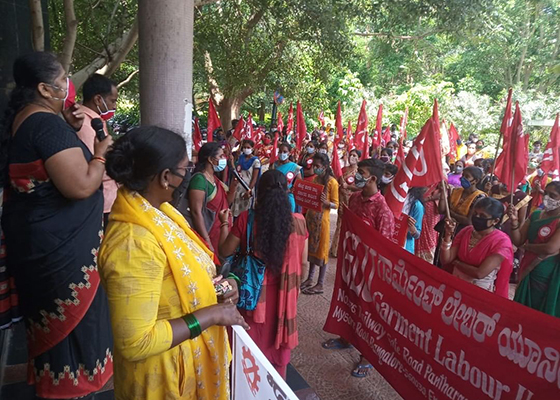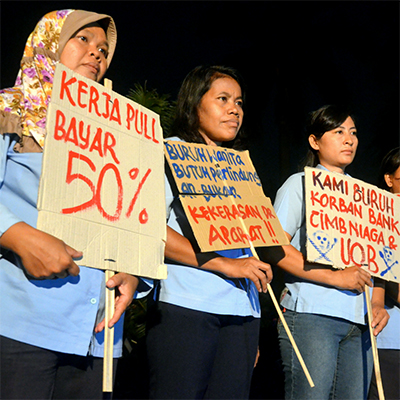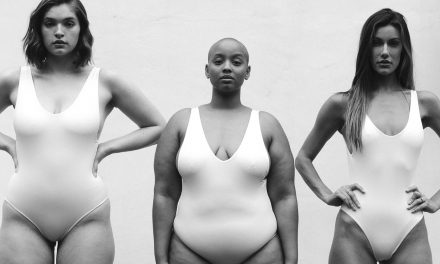The Future Of Fashion After COVID-19
Life after lockdown is a hot topic, but what about the fashion industry? We look at the issues surrounding the shut down of the industry and what the future of fashion will look like after Covid-19.
If the global pandemic changed our daily life drastically, this time has also become one of the most disruptive periods in the fashion industry. We dug deeper into the most significant developments of the past couple of months to find out whether these changes are here to stay.
Fashion Shows Cancelled
Everything, quite symbolically, started to crumble during the latest Milan fashion week, which kicked off on 18th February. There was a concerning absence of numerous Chinese buyers and fashion journalists. China, which has always provided consistent support to household name Italian brands, was subsequently supported with a project called China We Are With You. A series of live streamed experiences kept the Chinese audience updated during the events of Milan Fashion Week. It was the first indication that the traditional format of Fashion Week could be transcended to accommodate an act of God.
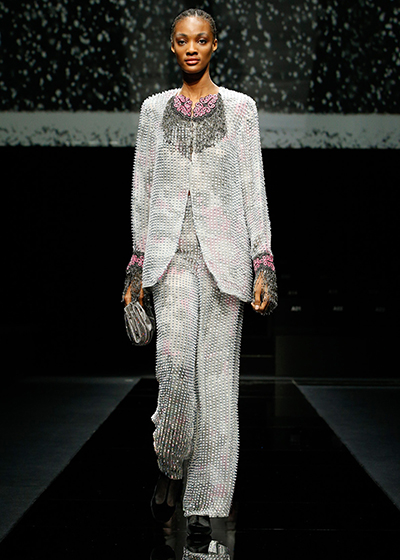
Image: Giorgio Armani Show
On the 21st February, the first case of COVID-19 was officially registered in Italy, later known as patient one. The first established designer to take immediate action was Giorgio Armani, who held his Milan fashion show in an empty room, devoid of guests amid coronavirus fears. The decision to live stream the runway show, as opposed to welcoming a live audience, was made in order to “safeguard the well-being” of guests. A decision not taken lightly. However a fairly regular Paris Fashion Week then followed. When the state of emergency was proclaimed in France, many fashion houses shifted their production in a matter of a few days. From garments and luxury perfumes, brands like Zara, Bulgari, L’Oreal and LVMH switched to producing PPE for hospitals and hand sanitizer.
Fashion shows as we know them are cancelled for the foreseeable future. Belgian designer Dries Van Noten, wrote an open letter (right after Giorgio Armani’s reflections) proposing to put the Autumn/Winter season back to Winter (August to January) and Spring/Summer season back to Summer (February to July). He also proposed methods to increase sustainability throughout the supply chain and sales calendar. “Less unnecessary product, less waste in fabrics and inventory, less travel. Make use of digital showrooms in addition to personal creative interaction and review and adapt fashion shows”. The letter was signed by young conscious designers including; Craig Green, Marine Serre, and Grace Wales Bonner.
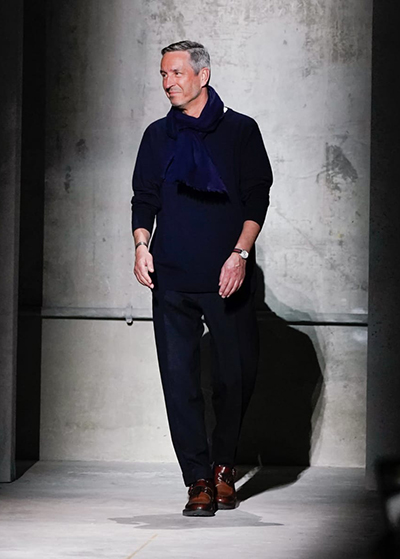
Image: Dries van Noten
Looking further ahead to the Couture calendar, the French Fédération de la Haute Couture et de la Mode cancelled all Haute Couture shows, scheduled to take place in Paris in June. Whilst it is of course a matter of public safety, we can’t help but consider whether continuing to show exquisite yet expensive Haute Couture would feel unsavoury in the current climate.
Gucci Leads By Example
Highly popular Italian label Gucci was the latest brand to announce the decision to switch to two collections a year. Creative Director Alessandro Michele, speaking from his home in Rome, said that “Fashion has really changed and we’re not doing things just for people in the fashion world anymore. Fashion is now like Woodstock – it’s opened up, and the old system doesn’t work.” Pre collections are looking more outdated and unnecessary than ever (have they ever been necessary?). Not only did they pose a question in terms of the speed of the calendar but journalists and buyers were often flown around the world to attend a single show. The carbon footprint was too ghastly to consider. One sure thing is, fashion shows won’t look the same post pandemic however it’s still too early to know which shape they’ll take.

Online Retail Is Stronger Than Ever
Many in the sustainable fashion space have been calling for an overhaul of the collections and catwalk schedules for years. However the opportunity has come at the cost of the loss of many lives. That being said, the perspectives in front of us are very contrasting. Alliance Bernstein’s Luca Solca, in a podcast with the Business of Fashion, declared that “the first half of 2020 will probably be the worst in the history of luxury retail”. That being said, with the closure of all bricks and mortar stores, what happened to the landscape of online shopping? Not all consumers are used to it, and not all brands have e-commerce capabilities. With sales dropping for many smaller brands, Net-à-Porter however declared an increase of 40% in sales, with – and that was quite predictable – a focus on loungewear and tracksuits.
On one side, there’s Amazon, as stated by The Guardian, which has become a ‘public utility’. The online retail giant has recruited an extra 175,000 workers to cope with a surge in online shopping during the pandemic. Job creation is a silver lining on an otherwise very dark cloud. However this doesn’t mean that online favourite fast fashion brands aren’t having a challenging time. Coronavirus lockdowns have forced giants such as Primark, H&M, and Zara owner Inditex to shut down thousands of shops.
Fashion Brands Cancel Factory Orders
Not only that but fast fashion brands have come under fire for cancelling millions of pounds worth of orders with their factories. This has left factories and workers in places such as Bangladesh, Cambodia and Thailand – facing a huge crisis. Garment workers, many of whom were not earning a fair living wage to begin with, have been left jobless. In some cases owed months of unpaid salaries and not receiving severance packages. At the time of writing, the following brands have failed to pay for uncollected orders; Primark, Vero Moda, Arcadia, ASOS, C&A, GAP, JC Penney, Kohls, Mothercare, Urban Outfitters and Asda/George. (For more details and advice on how you can help, visit Clean Clothes Campaigns website.)
Image: The Garment Labour Union Affiliated HMS in #India organised a protest against workers’ dismissals, unpaid wages, the increase to 10 hours of work per day and other alterations to Labour Laws.
Under fire discount brand Primark has since promised to create a fund for the workers affected by its cancellations. However they are reportedly not able to cough up until the Autumn of 2020. Uniqlo still owes its workers in Indonesia $55 million. A survey of 319 garment factory owners in Bangladesh conducted by the Center for Global Workers’ Rights between March 21 and 25, revealed that when cancelling orders, over 72% of buyers refused to pay for raw materials (fabric, etc.) already purchased by the supplier.
Ethical Fashion Is The Future
The virus will slow down the fashion system, this is a fact. We had hoped that this would have happened with a shared mindset and a conscious choice. However there have been countless missed opportunities. But as in any challenging situation, let’s look at those that have shown sustainable resilience in the longer term. Brands with a shorter supply chain are facing fewer struggles in producing products. Cora Hilts, Founder and CEO at Reve en Vert, told Business of Fashion, “We are doing better this month than we did during Christmas. People are shopping more online and have more time to make conscious decisions. Our designers have greater control over the supply chain because it’s very difficult to produce abroad and be sustainable.” The future is unsure, but one thing is shining through the chaos. Ethical fashion is pragmatic, resilient, and the side of the industry worth investing in.
Disclaimer: The people and models in the images featured are not associated with The Vendeur and do not endorse it or the products shown. This post may contain affiliate links. Prices correct at time of publishing.

